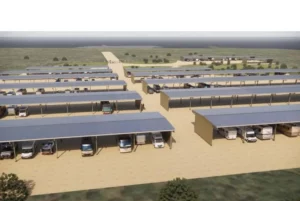
As the popularity of recreational vehicles (RVs) continues to surge, the demand for secure storage solutions has seen a corresponding rise. This has opened up a unique investment opportunity in the form of RV storage facilities. Investing in RV storage facilities can be an enticing prospect due to the potential for long-term returns. However, like any investment, there are both advantages and disadvantages to consider. In this article, we will delve into the pros and cons of investing in RV storage facilities to help you make an informed decision.
Pros of RV Storage Facilities for Long-Term Investment:
- Steady Income Stream: One of the primary advantages of investing in RV storage facilities is the potential for a consistent cash flow. RV owners typically pay monthly or annual fees to store their vehicles, providing a predictable income stream for facility owners. As more people embrace the RV lifestyle, the demand for storage spaces is expected to grow, ensuring a steady rental income.
- Low Maintenance and Overhead Costs: Compared to other types of real estate investments, RV storage facilities generally have lower maintenance and overhead costs. The infrastructure required for storage spaces is relatively straightforward, consisting of parking spots, security measures, and basic amenities. With fewer maintenance demands and utility expenses, the potential for higher profit margins becomes more likely. And consider there may be additional income stream if your storage facility can also offer RV maintenance and service on-site.
- Recession-Resistant Investment: RV storage facilities have proven to be resilient during economic downturns. In times of financial uncertainty, people often look for cost-effective ways to enjoy vacations, and RV travel provides a more affordable alternative to traditional options. As a result, the demand for RV storage remains relatively stable, making it an attractive investment option even in challenging economic times.
- Limited Competition: While traditional real estate markets can be highly competitive, the RV storage sector often offers a less crowded playing field. Compared to residential or commercial properties, the niche nature of RV storage facilities means there may be fewer investors vying for opportunities. This lower competition can provide an advantage to those looking to establish themselves in the market.
Cons of RV Storage Facilities for Long-Term Investment:
- Seasonal Demand: One of the drawbacks of investing in RV storage facilities is the potential for seasonal fluctuations in demand. Depending on the location, demand for storage spaces may vary throughout the year, with peak seasons during the summer months and lower demand during the off-season. This can impact the overall occupancy rate and potentially affect rental income.
- Initial Investment and Land Requirements: Establishing an RV storage facility may require a significant upfront investment, particularly when acquiring suitable land. Prime locations that offer convenient access, security, and amenities may come at a higher cost. Additionally, the cost of developing the infrastructure and complying with zoning and regulatory requirements can add to the initial investment.
- Maintenance and Security: While RV storage facilities generally have lower maintenance costs, they still require ongoing upkeep and security measures. Regular maintenance of the parking areas, surveillance systems, lighting, and other facilities is essential to ensure a safe and attractive environment for customers. Investing in reliable security systems and staff may also be necessary to mitigate theft or vandalism risks.
- Market Saturation: In certain regions, the market for RV storage facilities may become saturated over time, especially if multiple investors enter the market simultaneously. Increased competition can lead to downward pressure on rental rates and occupancy levels, impacting the overall profitability of the investment. Thorough market research and careful selection of locations are crucial to avoid oversaturated markets.
Conclusion:
Investing in RV storage facilities offers several advantages for long-term investors, including a steady income stream, relatively low maintenance costs, and recession-resistant qualities. However, it is essential to weigh these benefits against the potential challenges, such as seasonal demand fluctuations, initial investment requirements.


